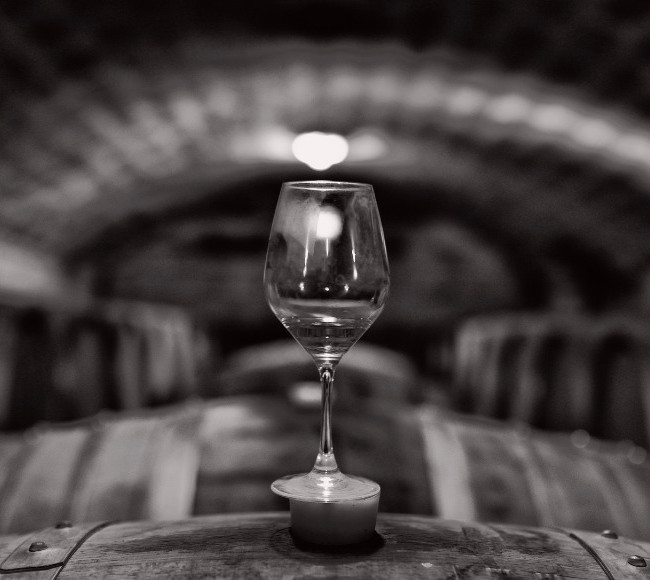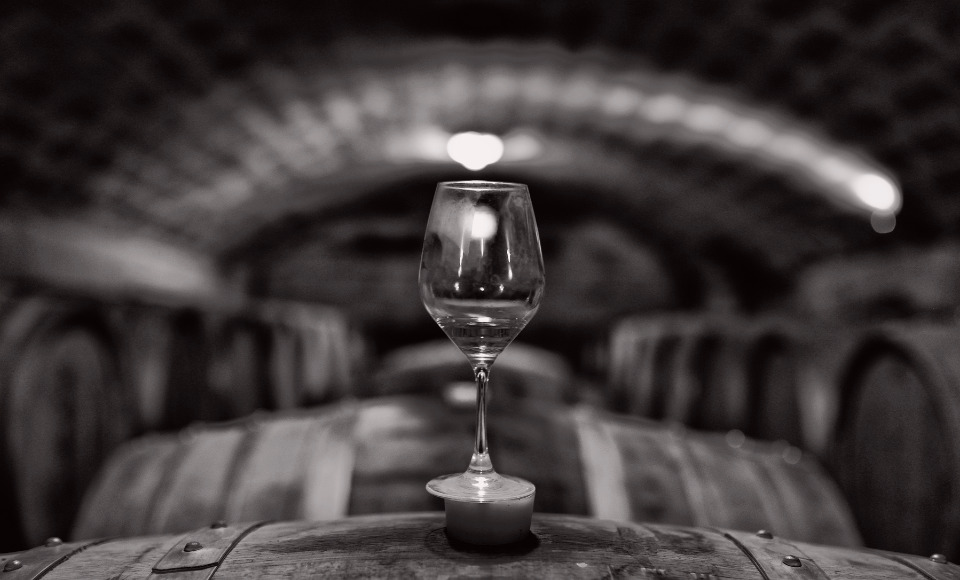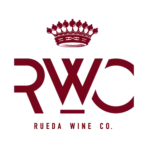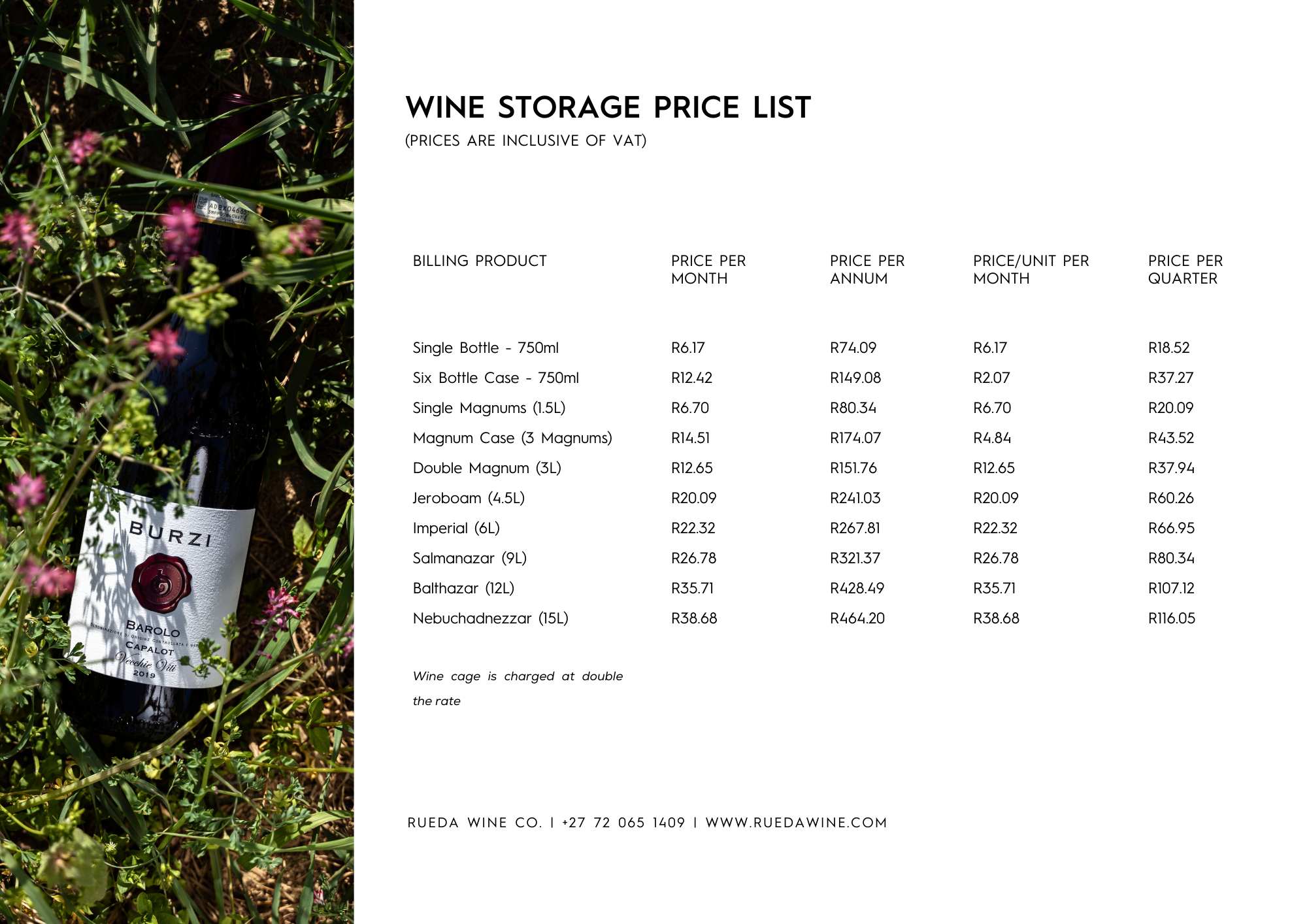
Have you ever bought a bottle of wine and wondered whether it would be better years from now? The process of ageing wine is more complicated than throwing it in a dark cupboard and waiting. One should leave nothing to chance when it comes to ageing wines.
Now, you might be wondering what the purpose of ageing wine is. Can wine really be an investment? Or perhaps if it’s even worth learning about which wines to cellar and which to drink immediately.
By the end of this article, you should have a good understanding of what the purpose of a cellar is. Why do some wines undergo an exquisite alchemy as they age? Which wines make great investments? And finally, whether cellaring wine is something that may be of interest to you.

How Exactly Does Wine Age?
It’s simple. (And complicated). At its fundamental level, wines undergo chemical reactions as they age. Phenolic compounds react. Tannins soften. Sediments build up. The wine responds to its storage container before bottling and then with oxygen once sealed in glass. The catalyst for continued ageing in the bottle is the cork. A good, natural cork allows around a milligram of oxygen into the bottle each year. This may vary with different corks and their individual oxygen permeability. However, roughly one milligram per year is sufficient for all the magic to happen.
When working with the natural elements of winemaking like cork, chance starts to play a role. Over time, faults can emerge in a wine. Certain pesticides used until the 1980s that remain in the soil can interact with fungi and produce a compound known as 2,4,6-trichloroanisole or TCA. While TCA has no physical impact on the human body, it easily interferes with our olfactory senses and renders a wine undrinkable, or, as we commonly know it – corked. There is as high as a 3% chance that a natural cork can be contaminated by TCA.
While a TCA fault can occur through the cork tree or contamination in the winery, maderisation is a wine fault that occurs through exposure to high temperatures. Wine is a living liquid, and is sensitive to temperature and temperature fluctuations. Maderised wine will taste jammy, like off stewed fruit, or oxidised. Often the wines will also be incredibly cloudy and difficult to see through.
High-quality wines in high-quality bottles are a must for ageing well. If you’ve been drinking wine for any appreciable amount of time, you’d know the horror of opening up a special bottle saved for a distinct occasion only to discover the wine has spoiled.
That’s where the cellar comes in.
The Cellar: The Magic of Ageing Wine
A wine cellar is an environment that is carefully controlled. It is used to store wine and allow the bottles to undergo ageing. There are two types of cellars, passive and active. This merely denotes whether factors are controlled or not. The factors affecting wine ageing are primarily temperature, humidity, vibration, light and air quality.
Uncontrolled humidity can cause corks to decay and dry out. Temperatures that rise too high can cause heat damage, resulting in insipid wine lacking in flavour leading back to the previously mentioned maderisation. When temperatures are too low, crystallisation may occur and damage the cork when the liquid expands and pushes the corks out. Extreme temperatures in either direction can result in excessive oxidization and destruction of the wine. This robs wine of its essence and scent.
Furthermore, air quality is another element to control. Corks are porous and pollutants like smoke conduct easily, damaging the delicate flavours. Vibrations shake up sediments. Exposure to sunlight can fatally flaw a once great wine. Uncellared and improperly stored wine is highly likely to spoil. Moving a wine unnecessarily or changing its orientation and allowing the cork to dry out can ruin a bottle too. Wine can be as delicate as its flavours. Correct wine storage is the best way to protect the living liquid that is wine. The safest way to accomplish this is to cellar wine in perfect conditions.
Unsurprisingly, there are entire theses written on wine ageing. One could argue endlessly about a prospective cellar’s perfect temperature, humidity, or parts per millionth of oxygen permeability through the cork. But this is generally not necessary. The most important thing to consider when cellaring wines is consistency. Limit light exposure. Keep the temperature constant. The lower it is, the slower the wine ages.
When Is Ageing Wine in a Cellar Right for You?
Wines change as they spend more time in the bottle. Flavours intensify. Sharp edges smoothen. What were mere hints before become essences that dance on your tongue. Some wines have the potential to become truly exquisite with a few years of careful ageing.
At a glance, high acidity, alcohol, intense flavours and complex tannins are important ingredients in the ageing transformation. But to know how long to age your wine, first consult the producer or a trusted wine consultant. Are they an established vineyard with a long history of making great wines? Consider the region the wine hails from. Are the grapes begging to be aged, like a Nebbiolo or Cabernet Sauvignon?

Suggested Best Practices for Red Wine Ageing by Varietal (Madeline Puckette – WineFolly)
It’s unlikely you will need a cellar if you buy single wines and drink them quickly. However, if you regularly buy cases or several cases of wines, exploring ageing wine could yield wonderful results and truly elevate your drinking experience.
At Rueda Wine Co. our wine experts recommend sampling one bottle in a prospective case. This is an important step in deciding how you want to approach the ageing strategy for the rest of your case.
This first bottle should be assessed based on varietal, and its current presentation. You have several options when it comes to deciding how you want to age wine. Comparing reviews of the same or similar wine can help you benchmark timelines. You can rely on how the wine tastes and gauge your timeline more intuitively. For those looking for a bit more certainty in the process, there are thankfully technical structural elements of the wine you can use.
Paying attention to the structural elements of a wine is a more technical approach to ageing wine. Some of the ageing considerations would take into account the relationship between acidity, tannins, fruit levels, volatile acidity, and alcohol levels. Many producers include these notes in fact sheets about the wine, and this information can be available if researched.
The remaining five wines should remain safely stored in the correct cellar conditions. We suggest drinking four within the correct window keeping the very last one in the cellar for a few more years as a test.
If you are starting to grow your wine collection and are adding rare or exciting bottles, then yes, cellaring is critically important. A hundred times yes. Ensuring your valuable wines are kept for the special occasion you bought them for depends entirely on correct storage.
Wine as an Investment
If you wish to begin investing in or speculating on wines, cellars are a necessity. One should consider purchasing a case or two to begin investing in wine. These should be wines that identified specifically for further ageing. Although this isn’t always necessary. Part of the fun of ageing wines is that some wines, even unconventional wines, become truly outstanding with a few more years in the bottle.
If you are building a portfolio of wine, you want to make sure your wines stay valuable. Storing your wines in a professional and controlled cellar environment is a must. Although faults like cork taint can’t be prevented by cellaring, many others can. Likewise, when buying wine privately, be sure to look for professionally cellared wines that have the stamp of approval of a professional cellar.
By variety, one can determine which wines to cellar and for how long. Many of our Bordeaux blends undergo the wonderful alchemy of ageing as early as five years and can mature and develop exquisite flavours for twenty-five years, plus! It’s a perfect time to consider adding some to the 2022s to your collection.
Of course, financial incentive is not the only reason to age wine well. Besides the asset value, if one succeeds in ageing a wine correctly, they will experience something few people ever do. The joy of sampling a wine when it is perfectly in its prime. With correct storage and ageing, you’ll always be assured that your wine is the best it could have ever been.
Rueda Wine Co.’s New Cellars
Rueda Wine Co. is proud to announce we have recently doubled our cellaring capacity from 40,000 bottles to 100,000 bottles. Through extensive consultation, we’ve arrived at a careful balance of all factors that affect ageing wine. Our state-of-the-art facility withstands load-shedding, provides the perfect humidity-to-temperature ratio and has several key features to protect against temperature loss and variation.
All wines stored with Rueda Wine Co. are accessible within twenty-four hours. Besides our assurances of safety and insurance and a personal cellar account, we offer cellaring reports monthly, 24-hour security, camera-monitored cellars and further consultative services regarding wine ageing.
Not only can you purchase some of the very best wines in the world from Rueda Wine Co., but with us, you can now ensure they’re enjoyed at the height of their perfection.
JOIN THE RUEDA WINE CO. COMMUNITY

